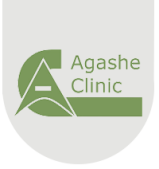Shoulder Replacement Surgery
What is Shoulder Replacement?
Shoulder replacement is a process that attempts to eliminate pain and dysfunction by replacing damaged parts of the shoulder joint with artificial components called prostheses. The most common causes of shoulder replacement surgery are osteoarthritis, rotator cuff tear joint disease, avascular necrosis, or rheumatoid arthritis. Dr Abhijit Agashe is the best and most experienced orthopedist who performs Shoulder Replacement Surgery in Pune.
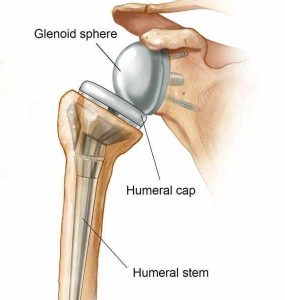
How to prepare for shoulder replacement surgery?
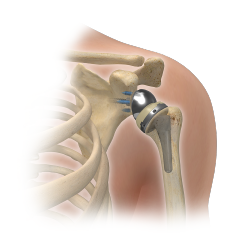
Before placing a new shoulder, you may need a complete physical examination and X-rays or other imaging tests so that the surgeon can view the joints.
Talk to your doctor about any other conditions you have and the medications you are taking. You need to stop taking certain medicines, especially narcotic pain medicines, a few weeks before the operation
You may also need to stop drinking, quit smoking, and exercise more. Scientists have found that smokers are more likely to have complications from joint replacement surgery than non-smokers.
On the night before surgery, don’t eat or drink anything after midnight.
The whole process takes about 3 hours. The doctor will prescribe medicine for you during the operation.
Within a few weeks, after you leave the hospital and go home, you need to make sure you get some help in organizing your daily routine. If you have no family or friends to help you, you may need to stay in a rehabilitation centre until you can do more by yourself.
You may also want to move something around the house to make it easier to handle. When you get there, you will recover.
What is the recovery time for shoulder replacement surgery?
The recovery period varies from person to person and also depends on the type of surgery you have. Generally, you should use your arms for lumbar exercises on the first day after surgery. You must dress and feed yourself during the first week. Be careful when driving. Continue driving only when you are sure that it is safe to continue driving.
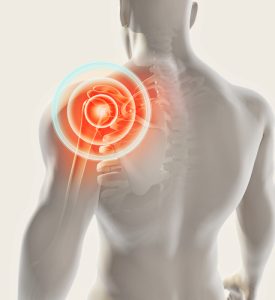
What are the different types of shoulder replacement surgeries?
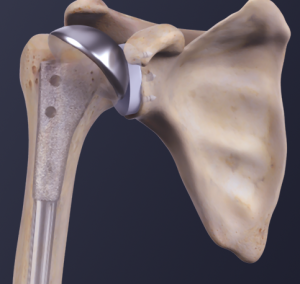
Your surgeon will discuss with you what type of shoulder replacement surgery you may need. There are four options:
- Hemi-Arthroplasty – only the bulb and stem are replaced during this process. The handle is connected to the ball and connected through its natural socket.
- Rehabilitation of Semi-Articular Replacement Surgery – Including replacement of the articular surface of the humeral head with a cap-shaped stalkless prosthesis.
- Total Anatomical Shoulder Arthroplasty – Arthritis is replaced by a highly polished metal with a plastic cup attached to the humeral stem and a plastic cup in the joint socket.
- Stemless Total Shoulder Arthroplasty – This is the bone-preserving version of total shoulder arthroplasty, metal. The ball is connected to the upper arm without a stem.
- Reverse Total Shoulder Replacement – In reverse total shoulder replacement, the joint is actually reversed, which means that a metal ball is placed on the glenoid.
What are the complications of shoulder replacement surgery?
All operations have certain risks. There are several possible complications after shoulder replacement surgery:
- Infection – Minor infections in the wound area are treated with antibiotics, while severe infections may require additional surgery.
- Reduce or modify the implant.
- Other prosthetic problems – The prosthesis may wear out and sometimes the components may loosen. Sometimes more surgery is needed.
- Nerve damage – Nerves may be damaged during surgery.
- If you have diabetes, the risk of complications increases. Diabetic patients may experience wound complications and infections.
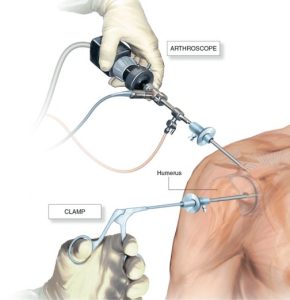
What to do and not to do after shoulder replacement surgery?
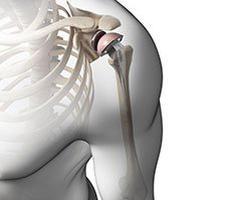
Some precautions should be followed after a total shoulder replacement:
- Do not use your arms to get up from a bed or chair.
- Follow the home exercise plan prescribed for you.
- Do not lift anything heavier than a glass of water for the first 2 to 4 weeks after the operation.
- Do not participate in contact sports or repeated weightlifting after shoulder replacement.
- For the first 6 weeks after surgery, avoid placing your arms in any extreme positions, such as directly on the side or back of your body.
- Physiotherapy for shoulder replacement can also help recovery after shoulder replacement surgery.
Why Choose Dr. Abhijit S. Agashe ?
Dr Abhijit S. Agashe is the Best Knee Replacement Surgeon in Pune who performs the surgery using all the advanced technology which gives the best result. He is the most experienced orthopedic surgeon in Pune
Agashe Clinic
- Research Award by Bone and Joint Decade – 2004
- Esteemed Fellowship Offered By The AO Group From Switzerland – 2008
- Fellowship With Prof. Willium Peterson From Germany In Sports Medicine – 2007
Address
- Office no 206, Siddharth Towers Building no 1 Near Karishma society, Kothrud, Pune, Maharashtra 411029
- 086006 53737
- [email protected]
